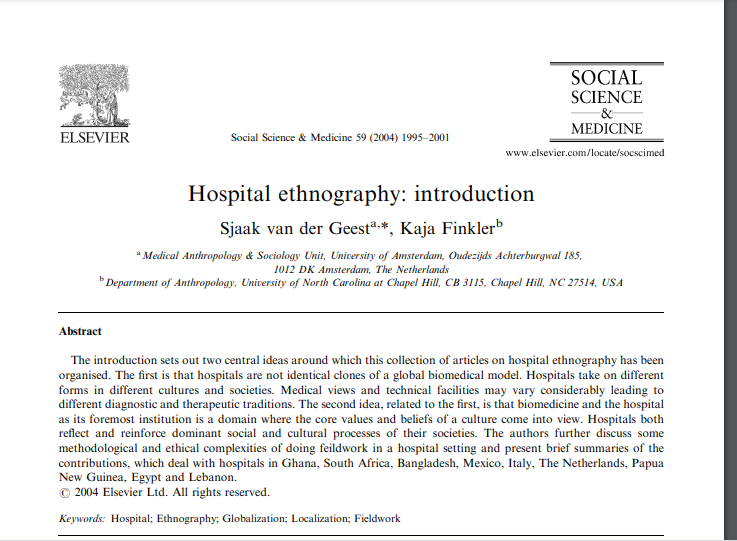
THREAD: On delving into an entirely new topic and doing a literature review, but performed with an example.
A lot of people use my blog posts as guides to literature reviews, either for themselves or for their students. I have received similar questions to the ones I'm quoting.
A lot of people use my blog posts as guides to literature reviews, either for themselves or for their students. I have received similar questions to the ones I'm quoting.
Questions like the ones posed in the quoted tweet are quite common. A few people asked me "Professor Pacheco-Vega, how do I go from having read All The Things to producing a Conceptual Synthesis Excel Dump (CSED) that makes sense to writing my lit review?"
https://twitter.com/MelissaVasi/status/1370312259046670336
If you are a frequent reader of my blog, you probably know I've written a metric tonne of blog posts on specific items of the literature review (when to stop reading, how to create a mind-map of the literature, how to produce paragraphs of the lit review, etc.)
All the posts I've created on my Literature Reviews page raulpacheco.org/resources/lite… I've written them with the perspective of someone who writes a lot of literature reviews because he is (and his students are) so curious about so many different topics.
I understand these students' concerns. Why should I be writing a literature review, what is its purpose and how do I go about it?
After teaching undergraduate, and graduate (Masters, PhD) courses for a few years now, I think I understand the difficulty of understanding LRs.
After teaching undergraduate, and graduate (Masters, PhD) courses for a few years now, I think I understand the difficulty of understanding LRs.
What I have found most useful when I teach how to do Literature Reviews is explaining that to contribute to a body of research, we need to understand and know very well the landscape of scholarship that is out there. Like having a puzzle, and knowing where your own piece fits.
This universal, common understanding of what a literature review entails makes it easy to showcase methods and strategies across all three levels (undergrad, Masters, PhD). You are seeking to understand the big picture, and then narrow down your own topic to something manageable.
Obviously, depending on the training each individual has had, they will know more or less about how to conduct a literature review. I have a few posts that might guide their approach.
1. If they're new to LRs, have them read this blog post first raulpacheco.org/2017/01/litera…
1. If they're new to LRs, have them read this blog post first raulpacheco.org/2017/01/litera…
In that post, I explain that there are different ways to train yourself to do literature reviews. One way is to learn how to do annotated bibliographies and THEN move on to writing literature reviews. Another way is to learn how to create banks of notes and THEN do LRs.
2. If readers/students have been exposed to the idea of a literature review, this blog post will help them go from reading to mapping the review raulpacheco.org/2017/04/how-to…
I would complement this post with this one on "how much I still need to read" raulpacheco.org/2017/06/how-ma…
I would complement this post with this one on "how much I still need to read" raulpacheco.org/2017/06/how-ma…
EVERYONE, absolutely EVERYONE asks me "when should I stop reading and start writing". Actually, you should always be reading AND writing.
The notes you take off your readings ARE also valid as writing.
Your CSED rows ARE writing. raulpacheco.org/2016/06/synthe…
All these count.
The notes you take off your readings ARE also valid as writing.
Your CSED rows ARE writing. raulpacheco.org/2016/06/synthe…
All these count.
However, everyone asks me about the "stop sign". When should they stop reading? I talk about the importance of Conceptual Saturation (that point you reach when concepts or authors you've read start reappearing frequently in your materials)
raulpacheco.org/2016/06/how-to…
raulpacheco.org/2016/06/how-to…
Now, for the "live performance of how I conduct a literature review of a new topic". My Grandma was a nurse, my Grandpa was a military doctor. Because of my poor health, and because I was obsessed with studying nursing growing up, I've spent a fair amount of time in hospitals.
Because of COVID19, and also because I've recently recovered the friendship of a dear friend of mine from grade school who now is a Professor of Nursing and has a PhD, I've started thinking more about the politics and public policy aspects of understanding hospital operations.
I had been thinking about whether one could understand how health care professionals make decisions for a very long time. After all, I've spent a substantial amount of my life talking with doctors and nurses. And I've also cared for ill people (particularly my family).
As someone who teaches Qualitative Methods, who has edited the International Journal of Qualitative Methods, who has published on ethnography and conducts ethnographies all over the world, I'm not unfamilar with the method at all.
HOWEVER I've NEVER done hospital ethnography
HOWEVER I've NEVER done hospital ethnography
I recently wrote a grant proposal that, if funded, would allow me to conduct hospital ethnography across different sites/facilities/cities.
I am not a health care professional, nor a medical anthropologist, so I would definitely need to partner with my good friend to do this.
I am not a health care professional, nor a medical anthropologist, so I would definitely need to partner with my good friend to do this.
Here is the thing: I believe one step in preparing literature reviews that we don't properly teach and that helps students get out of the writing rut is asking them to DEFINE THEIR TERMS.
Do you want to write on Street-Level Bureaucrats (SLBs)? First question: What is a SLB?
Do you want to write on Street-Level Bureaucrats (SLBs)? First question: What is a SLB?
Who are the key authors on SLBs? (I know this answer, we all start with Lipsky, the book I tweeted about earlier).
Do you want to write on ethnography of illicit activity, such as drug trafficking? What is illict? How do we define illicit activity? How have scholars studied it?
Do you want to write on ethnography of illicit activity, such as drug trafficking? What is illict? How do we define illicit activity? How have scholars studied it?
It's an old and tried strategy, but I find that using the 5Ws and 1 H always helps me when I am trying to wrap my mind around a topic: en.wikipedia.org/wiki/Five_Ws
In the case of what I am trying to understand right now (hospital ethnography as a method), my first question is WHAT.
In the case of what I am trying to understand right now (hospital ethnography as a method), my first question is WHAT.
So, the first question I asked Google Scholar is "what, exactly, does hospital ethnography entail? what is hospital ethnography?"
Well, turns out that there are people who already have written papers I can read to be able to define what it is. This is step one of my LR approach.
Well, turns out that there are people who already have written papers I can read to be able to define what it is. This is step one of my LR approach.

You can use my blog post on "how to map a new field of scholarship" raulpacheco.org/2018/01/mappin… to guide you through the process of doing a literature review of an entirely new topic.
In my case, I did NOT ask trusted advisors, as I recommend in my post, but I am going at it alone.
In my case, I did NOT ask trusted advisors, as I recommend in my post, but I am going at it alone.
Turns out that several of the first hits on Google Scholar sound rather useful to me. I'm downloading them on to my "Hospital Ethnography" OneDrive folder.
As an ethnographer, I know that this paper will touch on topics I've thought about, but in a different field setting.
As an ethnographer, I know that this paper will touch on topics I've thought about, but in a different field setting.

I know that each paper that I download will have something to teach me. Remember, I'm new to hospital ethnography (not at all new to ethnography, but to this new field setting). This paper, for example, adds nuance and a dimension: paediatric hospital. 

My students often ask me: “Professor Pacheco-Vega, when should I start do mind mapping or concept mapping?”
My answer is: “from the moment you start reading a new paper”
I didn’t sketch my concept map in my Everything Notebook because I am still trying to wrap my mind around
My answer is: “from the moment you start reading a new paper”
I didn’t sketch my concept map in my Everything Notebook because I am still trying to wrap my mind around

From this point onward, you can follow either my post on "mapping a new field of scholarship" or this one raulpacheco.org/2019/08/on-rea… that takes you from reading a lot to creating a mind map of the field, to writing paragraphs of your literature review.
If you are an instructor or an educator, and are looking for guidance on how to craft the literature review assignment (that is, how to provide guidance to your students on what you expect from them regarding a LR) this post is for you raulpacheco.org/2019/08/writin…
While downloading papers on hospital ethnography, WHOA. I come across some of the work that @AnnetteBoaz has done. I know Dr. Boaz's work well, and finding this paper gives me a segway to the point I make on my post on mapping a new field.
I NOW KNOW WHO TO ASK FOR GUIDANCE :)
I NOW KNOW WHO TO ASK FOR GUIDANCE :)

The previous article focuses on another dimension I have to think about - different illnesses (cancer, etc.) can have specialized hospitals.
My next download was van der Geest and Finkler. Because I had already read some hospital ethnography work, I recognise van der Geest.
My next download was van der Geest and Finkler. Because I had already read some hospital ethnography work, I recognise van der Geest.

Also, the previous article seems to be a definitional one - this might be one worth printing and highlighting and reading (which is what I am going to do). This next one is ALSO coauthored by van der Geest, and seems definitional too, so another one to print and read. 

A direct search on Google Scholar for "hospital ethnography" which yielded key authors (van der Geest, Boaz, etc.) and journals (Anthropology & Medicine, Social Science & Medicine, Sociology of Health and Illness). Now, I need to switch keywords to add Mexico.
Note key authors.
Note key authors.

This is where you start doing citation tracing: once you find key authors (another one in Mexican hospital ethnography beyond Colmenares-Roa seems to be Taylor-Alexander, see screenshot). If I wanted to delve more into how hospital ethnography is performed in Mexico ... 

I am NOT ready yet to do citation tracing (forward nor backward) since I am JUST starting to read on hospital ethnography BUT if you are at the point where you identified key authors, themes, papers, you totally can. raulpacheco.org/2018/02/forwar…
Given that I have downloaded a bunch of PDFs, I can do Batch Processing raulpacheco.org/2021/02/batch-…
Since I do NOT have a block of time for this project right now, I can't, but from here onward you can use the Literature Review guides on my website to go on.
Hope this helps!
Since I do NOT have a block of time for this project right now, I can't, but from here onward you can use the Literature Review guides on my website to go on.
Hope this helps!
• • •
Missing some Tweet in this thread? You can try to
force a refresh


















